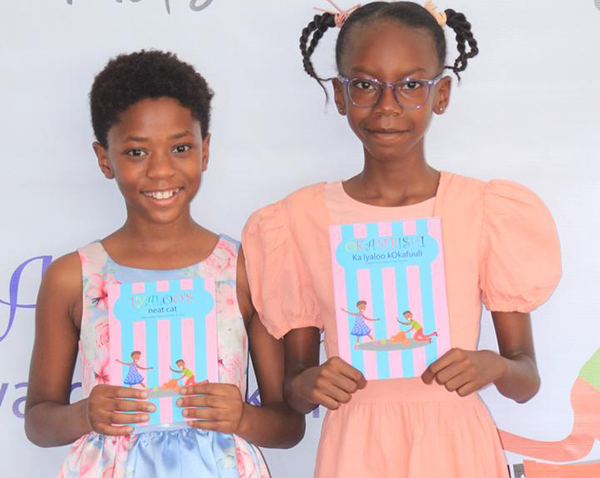Paheja Siririka
With children being exposed to people from all over the world – whether at school, at home or while playing, the English language takes precedence by default due to the nature of children wanting to communicate with one another.
What this then means is children’s indigenous languages are not used as often, which prompted Iyaloo Uushona – a fourth-grader – to write a book and translate it into as many indigenous Namibian languages as possible to promote the use of such vernaculars while also encouraging a culture of reading.
Uushona’s book, titled ‘Iyaloo’s Neat Cat’, has already been translated into Oshikwanyama, Oshindonga and Afrikaans.
“During the Covid-19 lockdown, I came up with the idea of writing a book when my mother was teaching me and my brother Oshiwambo. We were learning about animals, and when we were done, I drew a cat. I showed it to my mom, and she was so impressed and asked me to tell her more about the cat. I told her the name and what the cat was like,” said Uushona.
The long-term plan is to have the book in schools and bookshops across the country.
Local health and wellness coach Meke Namindo, who hosted the book launch recently, told Youth Corner that as a modern and urban mother, she knows too well how it is becoming a challenge for many people to keep their indigenous languages alive.
“Once school takes over, oftentimes traditional languages get lost. English is taking over – and unfortunately, we sometimes make the mistake of not speaking our languages to our children,” reasoned Namindo.
She added that many African children are not encouraged to be innovative, and too many African children are “booty-shaking” for social media, instead of coming up with innovative ideas.
“We need to identify talent at a young age. Why can’t a 10-year-old become an entrepreneur sooner rather than later?” she queried.
Author Popyeni Kaxuxwena said today’s children follow the technological algorithm that attracts them to social media sites, which is not a bad thing, considering the current times, but it should be complemented with discussions as well.
“We should allow them to connect with us through conversations by encouraging them to tell us their stories. Iyaloo is a perfect example of that – a story by a child for children,” he said.
Copies of ‘Iyaloo’s Neat Cat’ are available for sale at Mekenificent Centre in Klein Windhoek.
– psiririka@nepc.com.na


